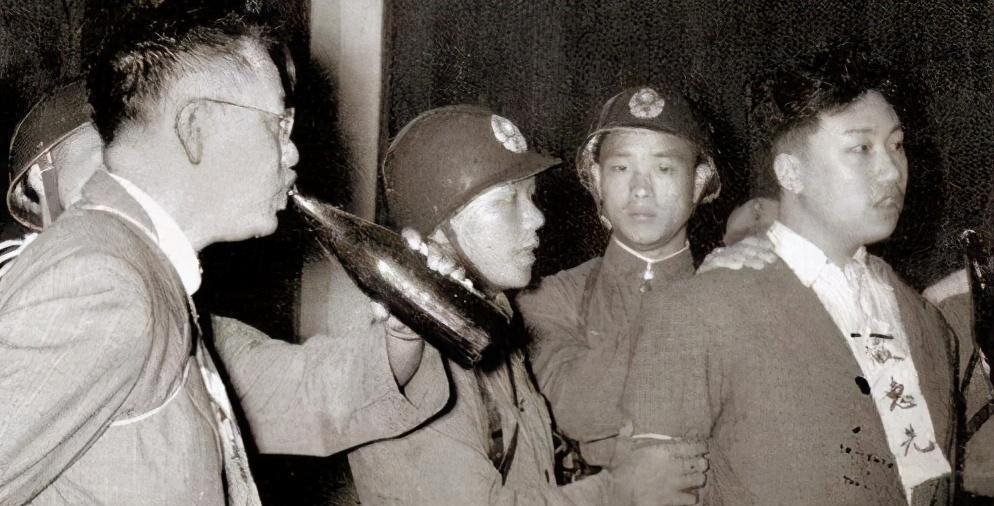Taiwan is China's largest island, and across from Taiwan is China's richest southeast coastal region, and its strategic location is very important. For various reasons, in modern history, Taiwan has been invaded and occupied by great powers many times. After the end of the War of Resistance Against Japanese Aggression, Taiwan returned to the motherland, but not long after, the remnants of the Kuomintang led by Chiang Kai-shek fled to the island of Taiwan, causing Taiwan to hang overseas again.

As early as after the end of the Battle of the Crossing River, the Third Field Army had already begun to prepare for the liberation of Taiwan, and Su Yu once increased the number of troops in the southeast coastal area to 12 armies with a total strength of 500,000 troops. In order to cooperate with Su Yu in combat, the new China's navy and air force are also developing rapidly and have a certain combat effectiveness. Many people say that the reason why Taiwan was not liberated later was mainly because of the outbreak of the War to Resist US Aggression and Aid Korea, but in fact, a very important incident occurred at that time, that is, the rebellion of Cai Xiaoqian, the leader of the underground party in Taiwan, resulting in the total annihilation of the underground party in Taiwan.
Cai Xiaoqian was born in Changhua County, Taiwan Province in 1908, and in 1924, Cai Xiaoqian came to shanghai university founded by the Communist Party of China to study in the Department of Social Sciences. In the process of studying, Cai Xiaoqian was influenced by the ideas of Qu Qiubai, Ren Bishi and others, and participated in the Shanghai Taiwan Youth Association of the Taiwan Progressive Youth Organization.
In 1928, Cai Xiaoqian was ordered to go to Taiwan to form the Taiwan Communist Party organization, responsible for organizing propaganda work in Taiwan. Cai Xiaoqian's actions were soon detected by the Japanese army, and later in order to avoid the Japanese army's search, Cai Xiaoqian fled to the mainland and infiltrated into Zhangzhou, Fujian. In 1934, Cai Xiaoqian participated in the Long March of the Red Army and was the only Taiwanese who participated in the Long March. In 1935, Cai Xiaoqian became the chairman of the anti-imperialist alliance. After the outbreak of the War of Resistance Against Japanese Aggression, Cai Xiaoqian served as the director of the Field Political Department and the minister of the Enemy Works Department of the Eighth Route Army Headquarters, and was later transferred back to Yan'an to work.
In April 1946, Cai Xiaoqian, who had been appointed secretary of the Taiwan Provincial Working Committee, returned to Taiwan. After Cai Xiaoqian arrived in Taiwan, he quickly launched a large-scale student movement, a peasants' rent and interest reduction campaign, and a workers' strike movement, and adopted guerrilla warfare and the regular troops of the Kuomintang army to maneuver, which caused a lot of shock in Taiwan at that time.
With the overall defeat of the Kuomintang army on the mainland, Chiang Kai-shek attached more and more importance to Taiwan and began to mobilize a large number of military, police, and special personnel to surround and suppress Taiwan's armed forces and underground party organizations. In the face of the deteriorating situation, Tsai Xiaoqian, instead of raising his vigilance, gradually became corrupt in life, and he began to gradually become obsessed with the pleasures of life and befriended the so-called upper class people in Taiwan. In order to please his sister-in-law, Cai Xiaoqian also frequently embezzled activity funds.
Cai Xiaoqian was arrested twice in January and March 1950. After his second arrest, Cai Xiaoqian rebelled. His rebellion led to the almost total annihilation of the Taiwan underground party, with more than 3,000 people shot and more than 8,000 arrested. Lieutenant General Wu Shi, vice minister of national defense, Lieutenant General Chen Baocang of the Ministry of National Defense, and Xia Xi, chief of the communication section of the General Affairs Department of the Kuomintang Southeast Governor's Office, were also arrested and shot. These people were all high-ranking and powerful figures in the Kuomintang army at that time, especially Lieutenant General Wu Shi, who secretly sent the deployment of Taiwan's military forces to the East China Bureau, which was preparing to liberate Taiwan. After The arrest of General Wu Shi, the Kuomintang side quickly changed the deployment of military forces in Taiwan.